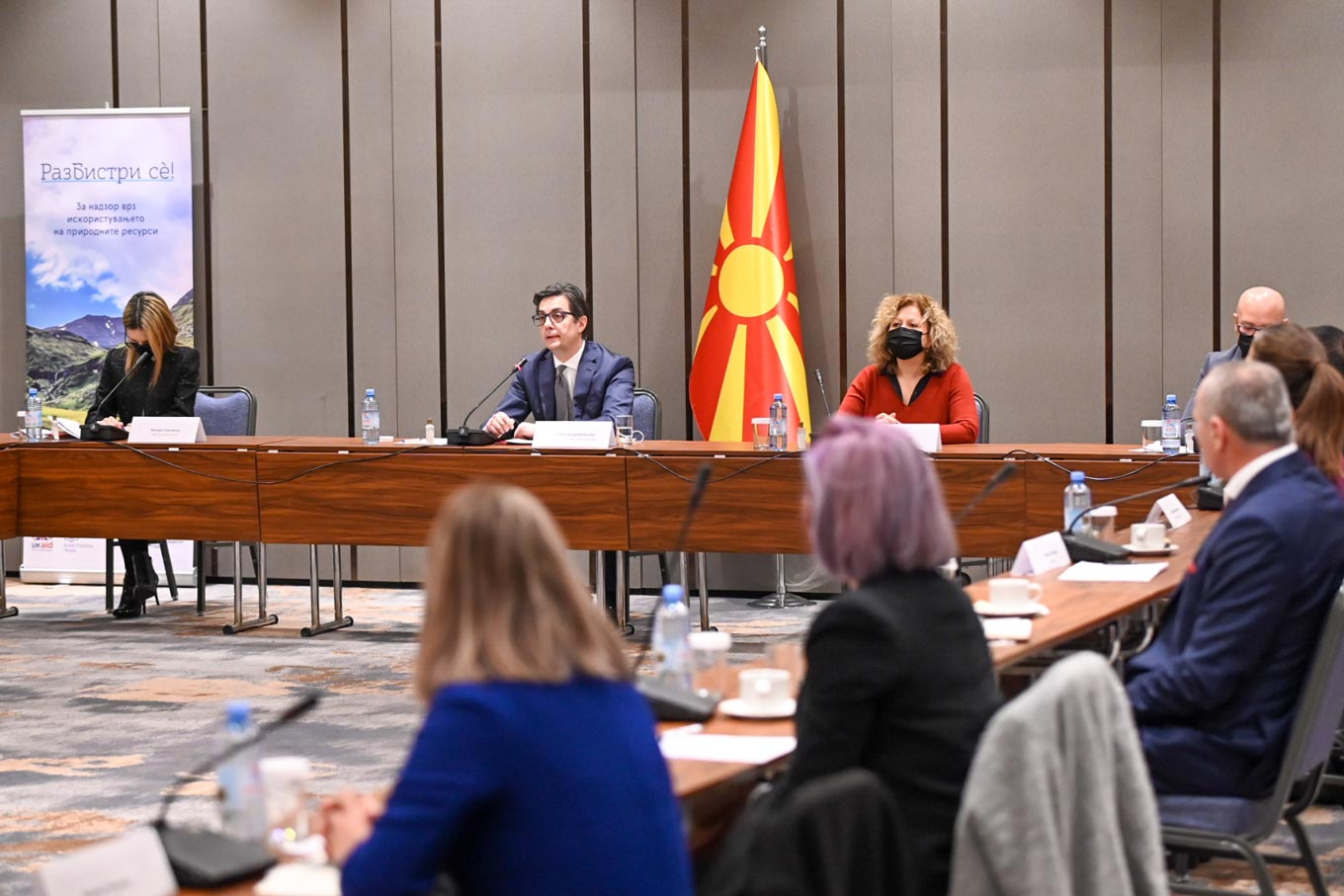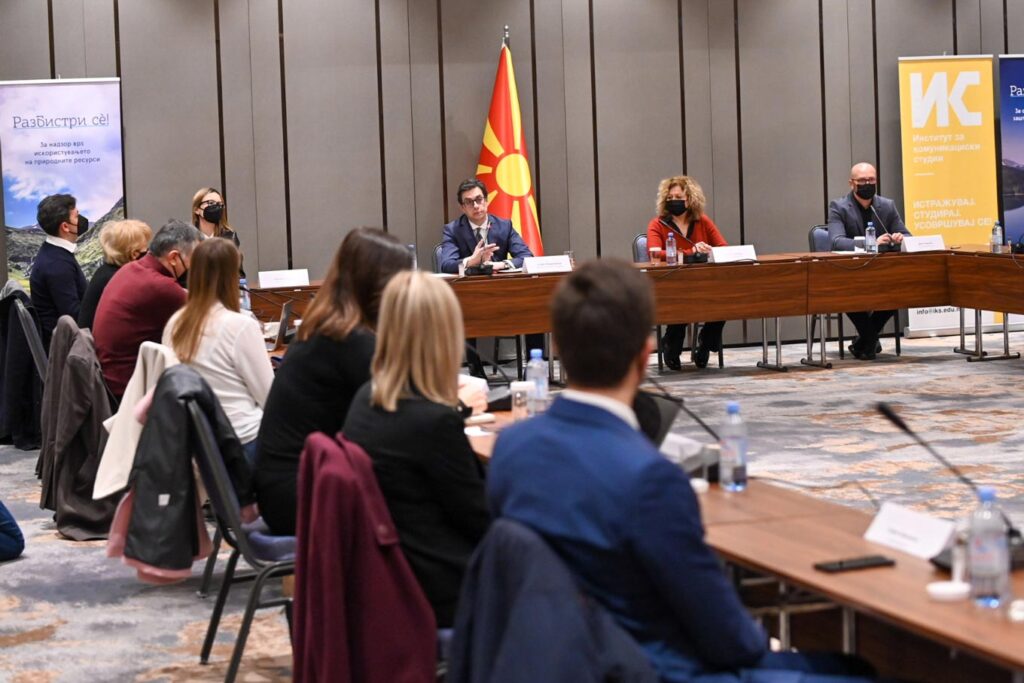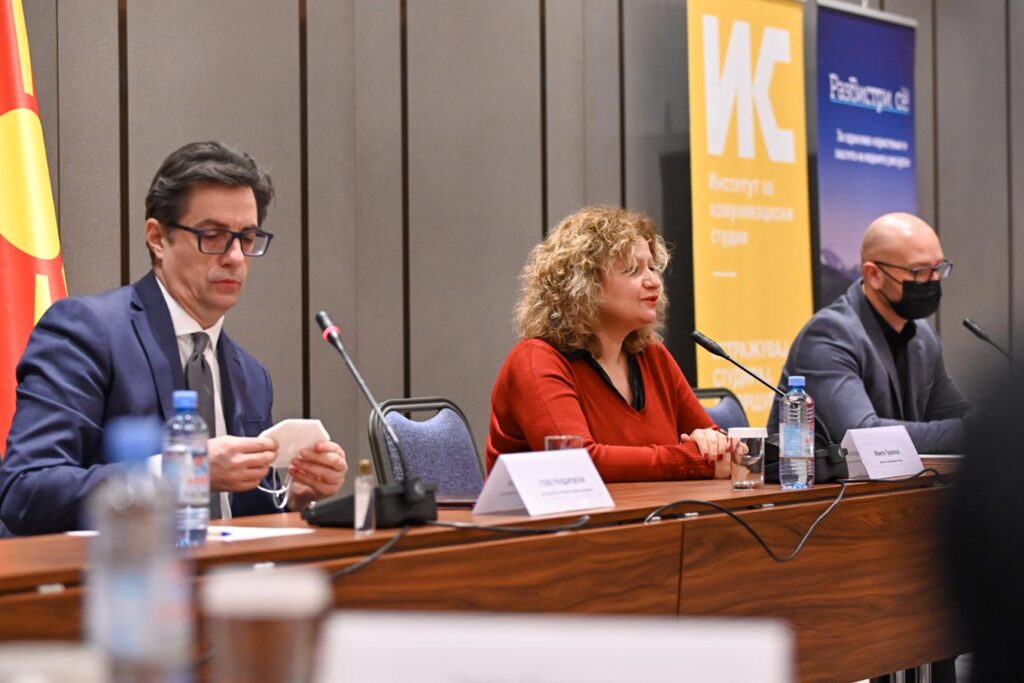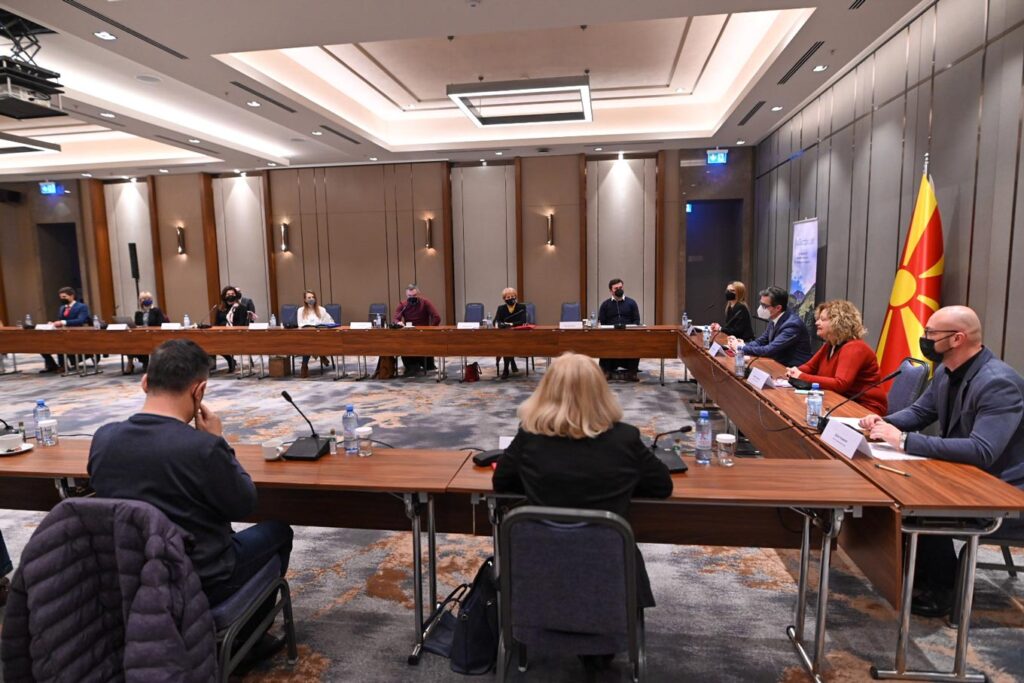
CSOs, professors and experts present the 2030 environmental goals and priorities
Reducing air pollution, establishing an integrated waste management system and rigorous control of the industry, improving water quality, protecting forests and biodiversity, creating sustainable food production systems and taking greater climate action.
These are some of the 2030 environmental objectives and priorities that representatives of civil society organizations, professors and experts from the “Clear it Up” Alliance conveyed today to President Stevo Pendarovski at a public discussion concerning the drafting of the Development Framework #MKD2030.
 According to them, the priority areas that require intensified actions are climate change, circular economy, air quality, waste and water management, industrial pollution, soil and sustainable food systems, protecting nature, biodiversity and forestry.
According to them, the priority areas that require intensified actions are climate change, circular economy, air quality, waste and water management, industrial pollution, soil and sustainable food systems, protecting nature, biodiversity and forestry.
The objectives and priorities to be achieved include the reduction of air pollutants at levels that fall within the national limits and the establishment of monitoring stations that will operate without interruption. It is necessary for all public buildings to be heated in an environmentally-friendly way, households should have more opportunities for energy independence and should be able to sell surplus electricity and increase the volume of urban greenery.
 By 2030, an integrated nationwide waste management system should be introduced. There should be opportunities for composting, sorting, recycling and reusing waste, as well as utilising it for generating energy.
By 2030, an integrated nationwide waste management system should be introduced. There should be opportunities for composting, sorting, recycling and reusing waste, as well as utilising it for generating energy.
Environmental objectives and priorities also include reducing the pollution of rivers and lakes, removing feed-in tariffs for energy from small hydropower plants and improving the water quantity and quality monitoring grid.
Those familiar with the situation say that industry transformation is needed to reduce greenhouse gas emissions and to fully treat wastewater before it is discharged, as well as to address the historical pollution of the country’s ecological hotspots.
The loss of biodiversity should come to an end and natural habitats and values should be protected, and 30 percent of the territory should be declared as protected areas.
Sustainable food production systems should particularly focus on small family farms, best agricultural practices should be fully implemented and organic production and local employment in rural tourism and agribusiness should be increased.
 Experts consider it necessary to pass a law on climate action, replace fossil fuels with renewable energy sources, create green jobs, introduce climate change education and campaigns to change awareness and habits.
Experts consider it necessary to pass a law on climate action, replace fossil fuels with renewable energy sources, create green jobs, introduce climate change education and campaigns to change awareness and habits.
The members of the “Clear it Up” Alliance also presented the problems that refer to all areas of the environment. These include the insignificant funds allocated from the state budget, non-implementation of laws, absence of environmental rule of law, impunity of perpetrators and corruption, non-transparency in the issuance of concessions for using natural resources and ineffective inspection activities both at national and municipal levels.
The public discussion was organized by the Institute of Communication Studies as part of its “Clear it Up” campaign, which is supported by the British Embassy in Skopje.

